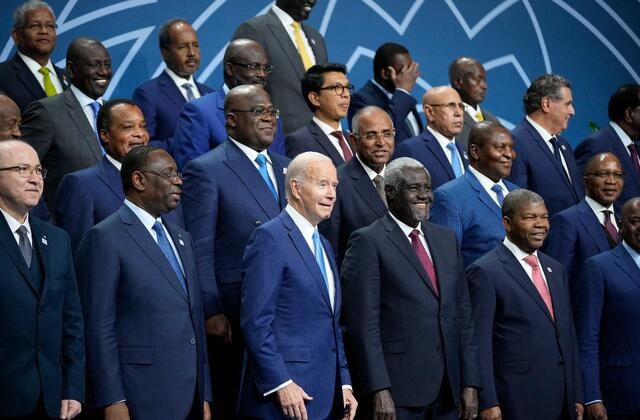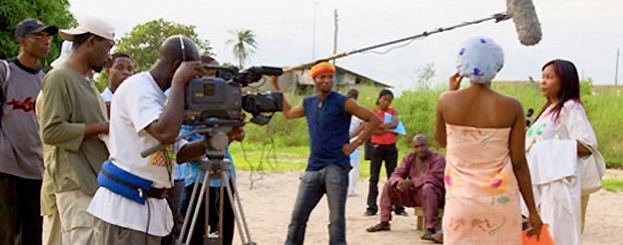Non-governmental organisations, NGOs, are strategic partners in the development of the African continent. Not only have they played key roles in seeing that all sectors of the economy on the continent develop evenly, but they have also paved the way for more proactiveness and accountability from governments.
From the local to the foreign-based NGOs, Africa has benefited immensely from their charitable activities and has also been inclined to get things done as laid out by the concerned NGOs for effectiveness.
Due to their huge numbers and activities, this article will focus on highlighting some of the aid that Africa enjoys from the US and NGOs from the US supporting Africa, their activities, what Africa has benefited from them, and how they have been able to influence political and financial accountability on the continent with their services.
The number of non-governmental organisations spread across Africa has continued to increase over the last few decades as a result of the urgent need to meet the demands of the populace.
With their activities, they have been able to achieve development in several sectors through advocacy, capacity building, enlightenment programmes, and effective monitoring mechanisms.
While the NGOs do not have full autonomy over all activities carried out because governments will exercise powers over them, they have both found a common ground wherein the plight of the people becomes the driving factor.
The place of the US in supporting Africa
The United States is regarded as the largest donor of humanitarian assistance to Africa, with Africa accounting for around 20 percent of U.S. aid.
This is done mostly through its coordinating arm, the United States Agency for International Development, or USAID, which also works with and coordinates other NGOs and international efforts towards boosting growth in Africa.
USAID has been at the forefront of coordinating aid and activities in Africa and has recorded relevant achievements in several sectors across Africa, as seen in some of the instances that will be highlighted below.
In 2022, amidst the various economic challenges that faced Africa, USAID provided more than $6 billion to various sectors in humanitarian assistance to Africans.
In the same year, US President Joe Biden announced $2.5 billion in emergency aid and medium- to long-term food security assistance for resilient African food systems and supply markets.
In late 2022, the NGO also announced new partnerships to the tune of $415 million to accelerate primary health care in Côte d’Ivoire, Ghana, Kenya, Malawi, and Nigeria. The African continent has also been a beneficiary of the U.S. President’s Malaria Initiative, which has helped improve primary healthcare generally in Africa.
Under the U.S. President’s Emergency Plan for AIDS Relief (PEPFAR), African countries are benefiting from the relief programme and are better off managing AIDS on their own than when the programme was launched initially in 2003. Taking Zambia as an instance here, it was one of the hardest hit by HIV/AIDS, with the life expectancy of its people reduced to 44 due to the menace, but through the commitment of the US and its PEPFAR initiative, as of 2023, the life expectancy in Zambia has increased to over 62 years.
For optimal performance across countries on the continent, USAID works with local NGOs that are familiar with the terrain, its people, and the challenges.
It assists the NGOs both technically and financially and partners with them as the need arises.
For instance, the Feed the Future initiative in Africa, funded by USAID across the continent to tackle hunger and food insecurity, is a typical example.
In Nigeria, the five-year (2019–2024) agricultural initiative is being implemented with local and international NGOs like the Mercy Corps in partnership with the International Fertiliser Development Centre to assist farmers in improving their output and productivity levels.
This also applies to other African nations where USAID operates; while it provides the technical expertise and funding, it partners with others for execution.
Overall, from health to agriculture, politics to good governance, and infrastructure to education, African countries receive significant aid from the US government and other non-governmental organisations.
Other US NGOs supporting Africa
While USAID is at the forefront of major aid to Africa, there are still other US non-governmental organisations carrying out other activities in various sectors like health, agriculture, infrastructure, and the like.
One such is CARE, a humanitarian NGO whose goal is to fight hunger, meet the basic needs of the people, reduce poverty, and also work to reduce social injustice and inequality.
At the forefront of its activities in Africa, it focuses on advancing the rights of girls and women. In the year 2022, CARE’s activities will cater to over 20 million people in Africa. Among them were victims of the devastating floods that ravaged several states in Nigeria, displacing around two million people.
How NGOs have influenced Africa’s accountability
NGOs have been reckoned to be accountable due to the nature of their funding, which comes mainly from donors, project partners, and the governments of individual countries.
Due to available competition and in contrast to monies from African governments from their natural resources, NGOs often take enough time to cross their T’s and dot their “I’s for accuracy so as not to miss out on funding opportunities.
It is in light of this that the NGOs ensure that the monies that are released for various projects and initiatives in Africa are well accounted for, both directly and indirectly, through various mechanisms. In doing this, such accountability has robbed African governments, which are hitherto associated with non-accountability.
The reason for this is not far-fetched: Africa needs the aid and grants that come from NGOs to achieve its developmental goals, so it strives to adhere to the guidelines that come with such aid.
Also, because most foreign NGOs go the extra length to organise capacity-building or enlightenment programmes for the locals across African communities on their activities, many people have become aware of what their governments are up to and are now politically conscious to ask questions and demand accountability on how monies are used.
Though no external factors are propelling accountability, it has become expedient for African governments to motivate themselves into doing so to encourage citizens to have trust in their leaders, aid more foreign direct investments to the continent, and also sell the African stories to as many countries as are willing to support their developmental process.
Unlike before, African leaders know that the people cannot be taken for granted and to earn their trust, efforts are being made to be accountable.
While it can be said that internal accountability is gradually gaining momentum in Africa, it is important to state that the continent still has a long way to go because acts of corruption and anti-government practices have eaten deep into the government’s activities, hindering accountability, but with the growing consciousness across the continent, accountability at its very best can be achieved.


